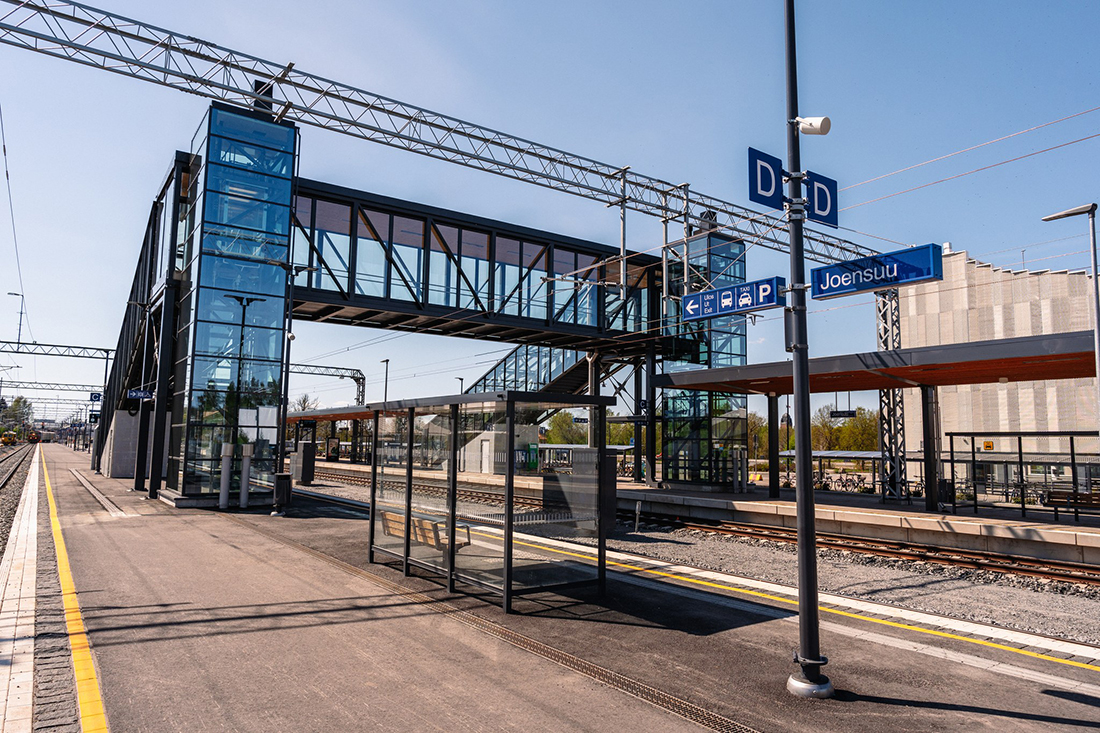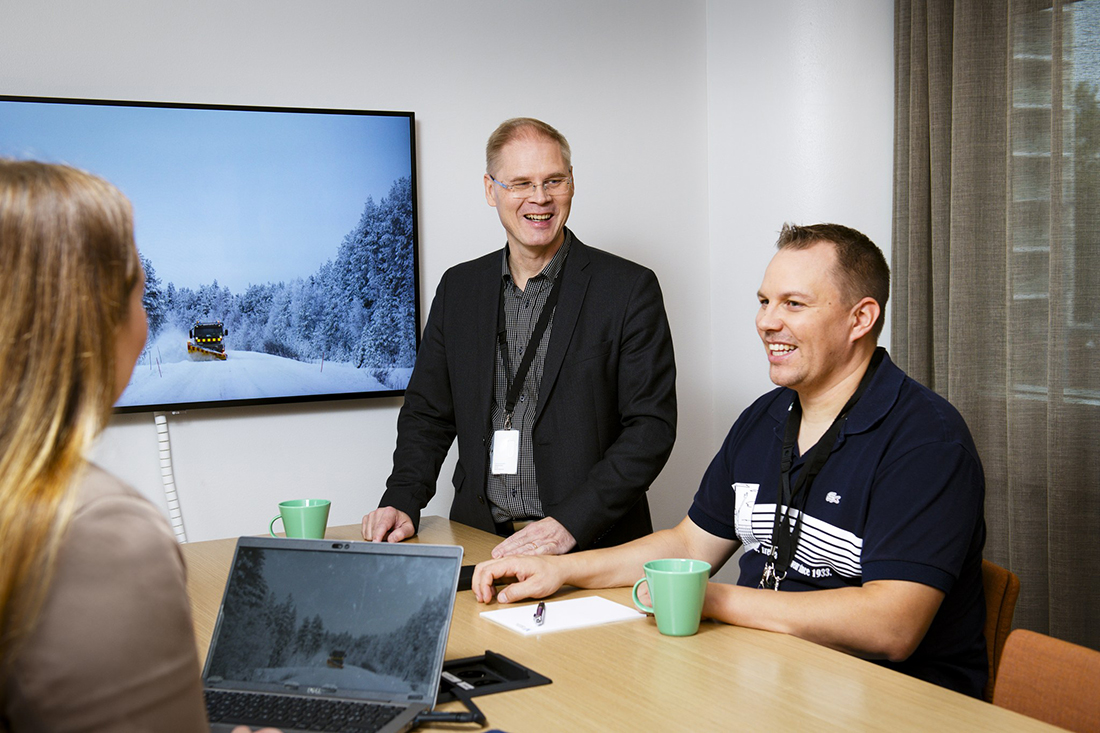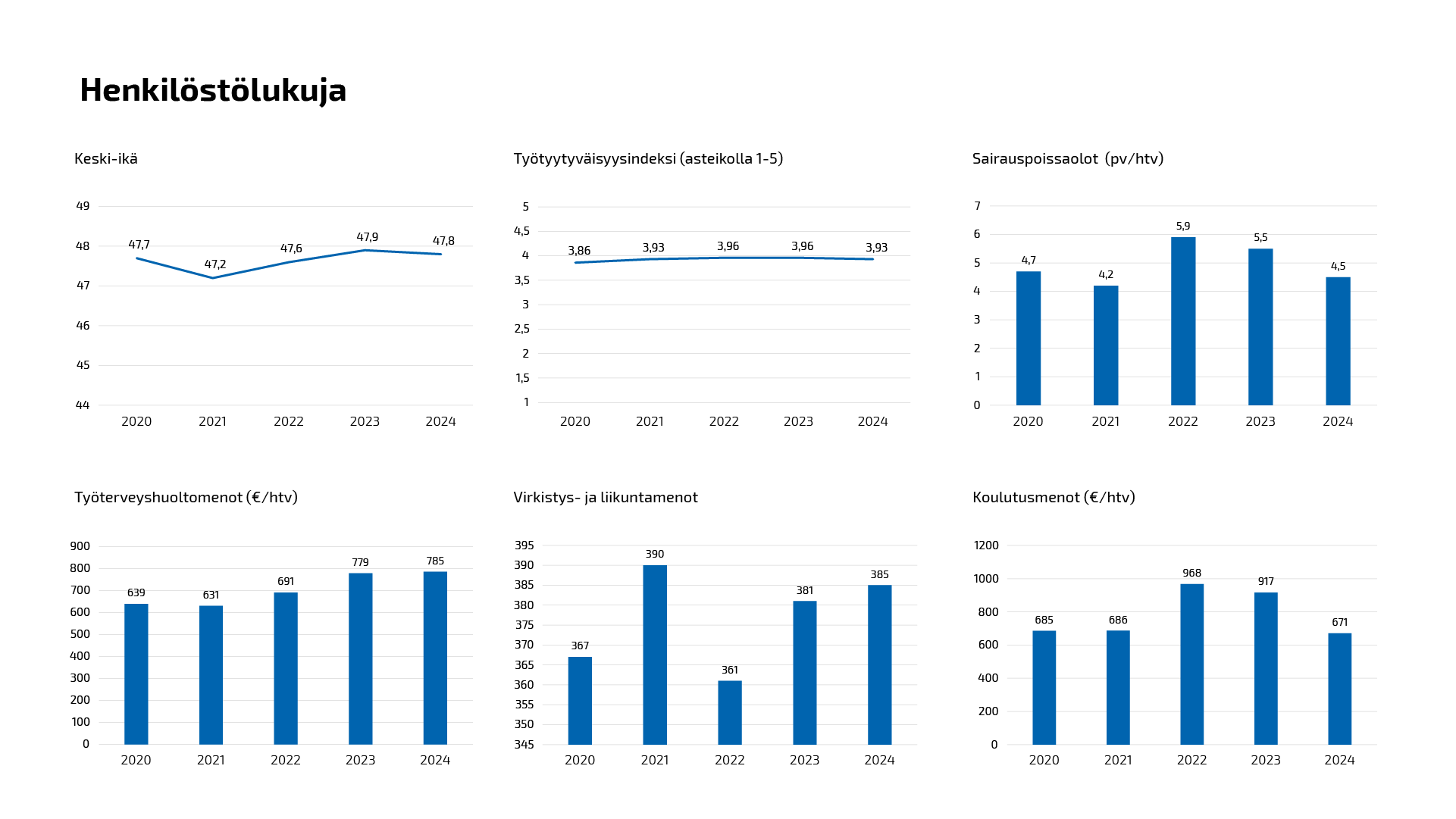Corporate social responsibility
The Finnish Transport Infrastructure Agency takes social responsibility into account in its procurements and complies with the Finnish Transport Infrastructure Agency’s Code of Conduct in all its activities.
In Finnish Transport Infrastructure Agency’s own and service providers’ work tasks, attention is paid to, for example, avoiding the grey economy and observing labour and human rights. This is facilitated by contract terms that limit chains of contracts to three levels. In addition, FTIA supervises the suppliers’ eligibility, the precondition for which is fulfilment of social obligations.
The Finnish Transport Infrastructure Agency has also promoted new employees’ entry in the sector by enabling their inclusion in contracts relying on an apprenticeship model. This means that new experts are assigned responsible tasks, which they perform with the support of a more experienced person. Taking accessibility into account in contracts where possible is also important.
Corporate social responsibility in transport infrastructure management has been identified as a key theme of the future. It is a question of whether transport infrastructure networks and their development serve different population groups equally, and will the benefits and disadvantages arising from them be shared fairly? In 2024, the Finnish Transport Infrastructure Agency formed an approach to assessing the social impacts of the investment programme and steps to develop a knowledge base concerning it. In the future, the agency will take steps to bear its social responsibility more extensively.
Accessibility
The Finnish Transport Infrastructure Agency strives to meet accessibility requirements in the design, construction, maintenance and procurement of the transport system and routes (physical accessibility) and in digital services (digital accessibility). In addition, the FTIA engages with accessibility organisations.
In 2024, the Finnish Transport Infrastructure Agency implemented several measures to promote accessibility. Internal workshops identified challenges in implementing accessibility and its current state in terms of planning, projects and winter maintenance. To examine the current state and development needs, a thesis was prepared and published at the beginning of 2025. In addition, a workshop on maintenance and exceptional circumstances was organised with a working group promoting the implementation of the accessibility vision of the transport system (Ministry of Transport and Communications, Traficom, Finnish Transport Infrastructure Agency). The workshop was attended by a large number of stakeholders.
The Finnish Transport Infrastructure Agency provided accessibility information for the ERSAD database work to Fintraffic and launched the activities of an internal accessibility steering group. The need for measures related to accessibility was promoted as part of the activities and programming of the passenger traffic operating point group. Stakeholder cooperation was strengthened by organising customer meetings with accessibility organisations and by carrying out citizen testing through projects.
In addition, the need for updates to the guideline RATO16 Routes and platforms for the guideline update to be carried out in 2025 was mapped, and accessibility surveys were carried out at railway stations. These measures demonstrate the commitment of the Finnish Transport Infrastructure Agency to promoting accessibility and observing its importance in all activities.

Accessibility
Accessibility in the Finnish Transport Infrastructure Agency’s services means ensuring that as many current and future user groups as possible can access digital services as easily as possible. In this context, accessibility means accounting for diversity and differences between people in the planning and delivery of services. Accessibility is addressed in the Finnish Transport Infrastructure Agency’s digital service and application procurements and in ensuring that the launched services are accessible.
The FTIA’s most visible public service vayla.fi was audited during the year by a third party, and the deficiencies in accessibility have been corrected. The importance of accessibility has been emphasised through internal training, and the theme has been integrated into the development of new services. A reform of the Finnish Transport Infrastructure Agency’s intranet and extranet was launched in 2024. When completed, these services will also be included in the scope of accessibility requirements.
Personnel
The Finnish Transport Infrastructure Agency is a responsible employer with established practices and processes for ensuring the well-being of its personnel and for work ability management together with an occupational health care partner. The objectives of the occupational safety and health policy also include ensuring that the FTIA is a safe and healthy workplace with thriving personnel and that occupational safety and health work is proactive and systematic.

In 2024, the FTIA continued to invest in strengthening its employer image and developing personnel competence following the HR and training plan. The number of applicants for positions in the FTIA has continued to increase compared to the previous year. More anonymous recruitments were also completed than in 2022, in keeping with the measures set out in the Equality and Non-Discrimination Plan.
Equality and non-discrimination were also realised and promoted more extensively in the administrative branch together with the ministry and other agencies. In 2024, the equality and non-discrimination plan was updated by implementing a personnel survey on the current state of the matter. The results of the survey were used to prepare measures. The plan was completed at the beginning of 2025. The Finnish Transport Infrastructure Agency additionally surveys and monitors the realisation of equality by monitoring the pay system. Little or no differences between the genders have been detected between positions of the same requirement level.
In 2024, the focus in the development of the personnel’s well-being at work and supervisory work was on psychological safety and ability to change, i.e. resilience. With regard to competence development, in project manager training the focus was on coaching management in 2024. At the Finnish Transport Infrastructure Agency, personnel were involved in the planning of the central government productivity programme regarding public expenses by means of open communications and a personnel survey on measures related to operating expenses.

Image: Finnish Transport Infrastructure Agency's key personnel figures in 2020–2024